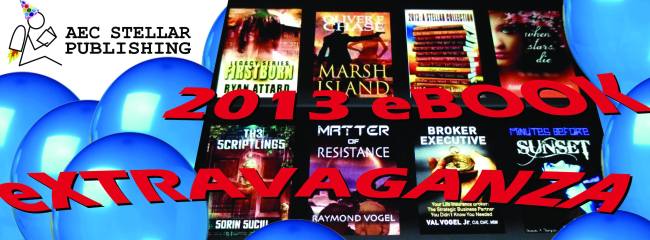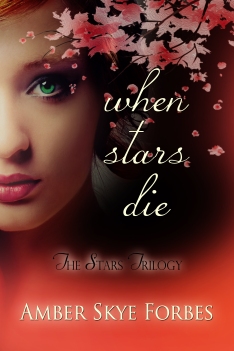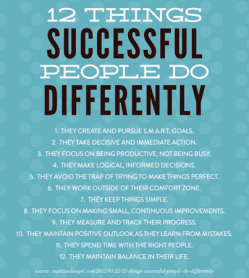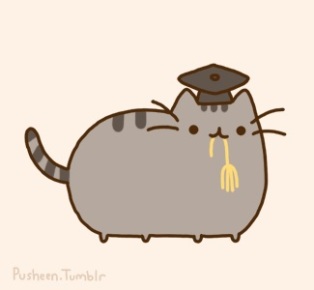 I had my very first school visit today as an author, and it was so exciting and fun. Time went by so fast that I couldn’t believe it. I had an entire agenda planned out, but I couldn’t get to all of it, like reading an excerpt from my book and having a Q&A session, but at least I got to the important parts.
I had my very first school visit today as an author, and it was so exciting and fun. Time went by so fast that I couldn’t believe it. I had an entire agenda planned out, but I couldn’t get to all of it, like reading an excerpt from my book and having a Q&A session, but at least I got to the important parts.
I’m going to talk about what I did for those curious about how to do an author visit, or for teachers who want their authors to visit and what they can do to prepare. Keep in mind that I did this for a creative writing class, so your presentations are going to differ depending on what type of classroom visit you’re doing. For example, I will be doing a visit in February to an economics class about marketing and branding, using my book as an example.
- I did a presentation on The Realities of Publishing, using this cute Pusheen cat to the right to add some spice to the PowerPoint. These are high school kids, and I didn’t want to bore them with some flat PowerPoint with nothing fun to spice it up. I talked about everything, from the expectations they need to have, to the pros and cons of being with big presses, small presses, and self-publishing, and I was pretty even-handed with all subjects. Unfortunately, I was really hoping to have a Q&A session so I could clarify anything the students had questions about during this presentation, but, well, it was a fifty minute class, and it’s so much shorter than it seems. I felt like I had been there for ten minutes! Even my mom was surprised by how fast I came home.
- Next, I did a fun dialogue activity, and the kids seemed pretty excited about this because the teacher did say they have problems with writing dialogue. There were 26 kids in the classroom, so I divided them up in pairs of 2. I admitted that I didn’t know how successful the activity was going to be, but they had fun. Basically, they were going to make up two characters. One partner would be a character, and another partner would be the other one. They were to discuss the types of characters they wanted to be, and the scenario they wanted their characters to be in, such as a party or some other event. Then they were to write one line of dialogue each–silently–and pass it on to their partners, getting in as much dialogue as possible in 10 minutes. This was actually a really funny one because I heard the kids putting up some funny scenarios–like doing jello shots– but the point of the exercise was to get them to write the dialogue how they would say it, read it aloud, then I would take it and read it sentence-by-sentence out loud, and then give them advice on how to make it more effective. Hopefully it was a little bit effective in getting them to understand what they could and couldn’t use in dialogue, but it is a process.
- Last, I gave the teacher a classroom copy of my book and a stack of flyers/business cards (courtesy of AEC Stellar Publishing Inc.) that she could pass out to her kids the next day. The business cards are so that the students can e-mail me about anything they want to. One student already swiped up the classroom copy, as well as a flyer that can also double as a bookmark, and the teacher is excited to give out the flyers tomorrow.
All in all, I would say it was a success. Now I’m going to give you tips on how to be a good presenter/public speaker. 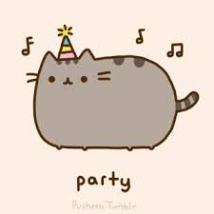
- Prepare a month in advance. I started preparing last November, especially with creating the PowerPoint. I went through several drafts of this, trying to find the perfect design that would be both attractive and fun, and trying to create the slides with the information to make sure the students would understand it. I also created an agenda, too, for the order I was going to do everything in. I couldn’t get to it all, but I did get to the important stuff.
- Try to have some formula for the presentations. I didn’t fully use the speech formula I learned in my communications class, where you have the introduction mentioning your various points you’re going to talk about, and a conclusion summing up those points. I eschewed that entirely, especially because of time, so I went right on to talking about what the whole presentation was about. I simply said that I was going to talk about the realities of publishing, some things to consider when starting the publishing process, then went on to talking about the advantages and disadvantages of large presses, small presses, and self-publishing. Since I already had bullet points, I felt no need to have note cards, so I improvised the examples I provided for each bullet point. I hate note cards. They’re so limiting and don’t really show my personality. They can be very boring, too, because they don’t always allow you to establish a sort of connection with your audience. A lot of public speakers, to me, can be very dull because they stand behind a podium, read from notes, and look up from time-to-time. I don’t like to be that way.
- DON’T BE SHY! Apparently authors are notorious for being shy, but not me. I love speaking in front of crowds. As I said before, there were 26 kids in this class, more than I thought there were going to be, but I didn’t feel pressured at all. I felt really relaxed and just had fun with it. You should have fun with it, too. At any presentation, the people there want you to do well, because if you’re not doing well, they’re not going to have a good time themselves. So these people do not want to see you fail, so keep that in mind. Even if you stumble on your words, just keep going. If you’re prepared for the presentation, then there should be no need for worry. I was certainly prepared–candy included!
- If you’re a teacher, let your students know in advance that an author is visiting. This can get the students excited, especially in a creative writing class. Don’t schedule a visit within a few days because this leaves no time for neither you nor author to prepare. As an author, even if I have everything prepared a week in advance, I still like to go over everything to make sure everything is solid. So schedule about a few weeks out to a month.
- If you can, give your students some background on the book the author wrote. This can make the kids even more excited and MAY potentially boost your sales. But, really, it’s promoting you and your book, but is really just a way to get yourself out there more–sort of an ego boost, to be honest. One successful school visit can lead to another. I don’t think Grovetown High School is going to put me anywhere else, but I do have a speaking engagement at a public library, a possible school visit from having a connection from someone who teaches at the school, and another school visit–and if that visit goes well, I WILL be getting recommendations to other schools. I’m also hoping to get into doing Skype visits for classrooms across the nation.
- If you can, especially if you have the visit scheduled months in advance, have your students read that author’s work. Students can then prepare questions about the author’s work and how said author went about writing it. People think anyone publishing a book is cool, especially kids, because they really will feel like they’re meeting a celebrity, even if you have not reached celebrity status yet.
That’s it! If you have any questions for me, feel free to e-mail me at thedancingwriter@gmail.com.
***In Other News***
AEC Stellar Publishing, Inc. is holding an e-book launch party on Facebook. That can be found here. Prizes will be given away, including a Kindle Paperwhite.
The e-book of When Stars Die is already out, but it “officially” releases tomorrow. You can currently find it on Amazon and Smashwords–Smashwords contains all formats, from Mobi, to EPub, to PDF, among others. It’s $3.89, so it’s very affordable, and you can read a 20% sample of the book.

